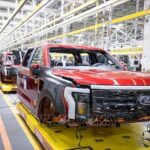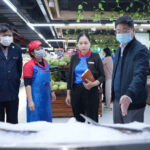The Northern Haze Season
On the sidelines of the launch ceremony of the “Fierce Vietnamese Spirit – For a Green Future” campaign in Hanoi, Tien Phong reporters captured the opinions of experts on the important role of the community in joining hands and contributing to a strong push for the green transition process, for today and tomorrow.
Air pollution, particularly fine dust (PM2.5), is a burning issue in many cities across the country, including Hanoi and Ho Chi Minh City. According to air quality index data over the past few years, Hanoi has had more than 30% of days in a year with poor or bad air quality.
Dr. Hoang Duong Tung, Chairman of the Vietnam Clean Air Network, expressed concern that this trend is not decreasing but rather increasing.
“Many people have used the term ‘pollution season’ instead of ‘winter’ in the Northern provinces. Large cities are being threatened by tiny PM2.5 particles, less than 30 times smaller than a human hair, that carry toxic substances. These particles are extremely dangerous as they can penetrate deep into the lung sacs and veins, reducing lung function and causing asthma and lung cancer, as well as entering the bloodstream.”
Fine dust is a cause of placenta blood poisoning, leading to fetal developmental issues. Babies born to mothers exposed to high levels of fine dust are often underweight and at risk of neurological problems and autism. Additionally, experts from the US Environmental Protection Agency suggest that PM2.5 particles, containing heavy metals, can cause cancer or impact DNA, leading to genetic mutations. The World Health Organization has declared PM2.5 as the fourth leading cause of early death. It is estimated that 4.3 million people die annually from diseases related to PM2.5 air pollution,” shared Dr. Hoang Duong Tung.
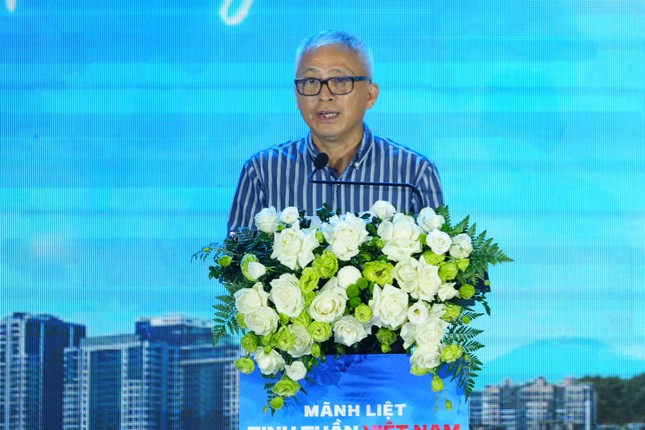
Dr. Hoang Duong Tung, Chairman of the Vietnam Clean Air Network.
To address this issue, Vietnam has made strong green transition commitments to the world, with the “zero carbon 2050” goal being one of them. To fulfill this pledge, in July 2022, the Prime Minister issued Decision No. 876/QD-TTg approving the “Action Program for Green Energy Transition, Carbon and Methane Emissions Reduction in the Transport Sector.”
The goal is that by 2040, Vietnam will gradually restrict and eventually stop the production, assembly, and importation of fossil fuel-powered automobiles, motorcycles, and mopeds for domestic use. By 2050, 100% of road motor vehicles, including private and public transport and specialized vehicles, will be converted to using electricity and green energy.
Hanoi is also determined to implement green transportation. The city plans to invest VND 43 trillion by 2030 in green buses.
Ho Chi Minh City is currently implementing a program of action for green energy transition and the reduction of carbon and methane emissions in the industry. Accordingly, the city aims for 100% of replacement buses to use electricity and green energy from 2025 onwards.
“The green transition is an inevitable path that we must take. We need to embrace green practices in production, economic development, and all other sectors,” affirmed the Chairman of the Vietnam Clean Air Network.
“Not transitioning early means being left behind in development”
Prof. Dr. Tran Dinh Thien, former Director of the Vietnam Economics Institute, asserted: “Green development is a historical and global mission, a task of utmost importance. Accomplishing this historical mission presents a formidable challenge, requiring the unity and collective effort of our best and brightest, along with strong determination and action from all of us.”
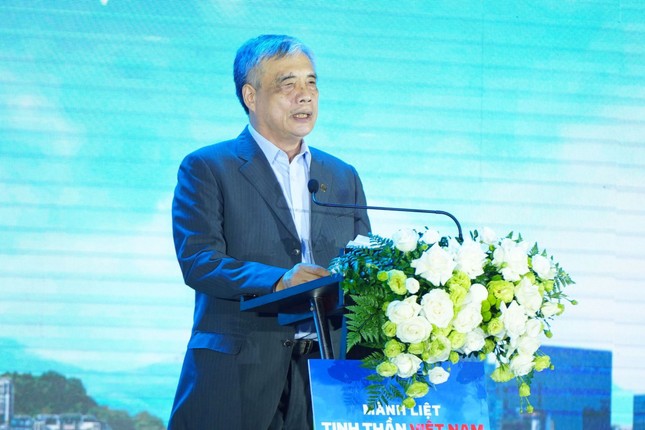
Prof. Dr. Tran Dinh Thien, former Director of the Vietnam Economics Institute.
According to Prof. Thien, the world is transitioning from a “brown” to a “green” state. While Vietnam has made strong green transition commitments to the world, we are still lagging. However, Vietnam is willing to take on this challenge and act. Nevertheless, Prof. Thien expressed concern that Vietnam remains in a “brown” state: “There is a lack of comprehensive understanding among the majority regarding the true essence of ‘green,’ its mechanisms, and its values. Many businesses have had to postpone their emission reduction programs due to unclear criteria and guidelines for action.”
Echoing this sentiment, economist Pham Chi Lan emphasized the crucial role of community unity and participation. Society as a whole must act as one, making a commitment not only to the world but also to themselves and future generations of Vietnam.
“In any field, we need pioneers who dare to think and act, and then call on others to follow. If no one takes the lead and everyone hesitates, nothing will change,” Ms. Lan emphasized.
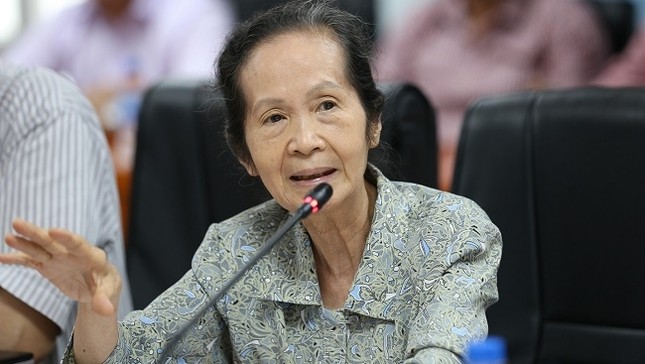
Economist Pham Chi Lan.
Ms. Lan highlighted the case of the green energy transition in the transport sector, specifically with electric vehicles like VinFast, and many other businesses that are gradually making the shift. More enterprises and individuals need to join hands to create a social impact and bring about a green future for the country.
The Need for Government Support
Prof. Dr. Tran Dinh Thien affirmed: “In the process of transitioning to green energy, we are already behind many countries, so we need to ‘advance to catch up.’ We must ‘advance’ beyond the nations that came before us and ‘catch up’ with the times; we cannot afford to lag.”
“We have the support and encouragement of the State and the Government, but we still need stronger and more practical supportive policies. We can learn from the experiences of countries that have gone before us, like Japan, South Korea, and many other economies, that miracles do not happen by chance. They are the result of a strong desire to rise and the unity of an entire nation,” said Prof. Thien.
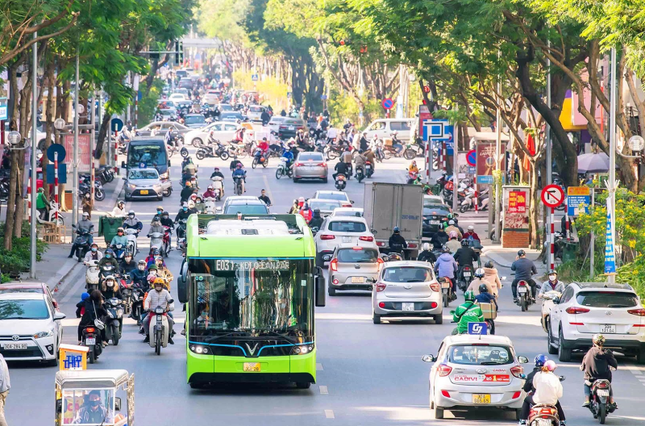
Vehicles on the streets of Hanoi today.
The expert cited typical cases in Europe, where the European Parliament has officially passed a law banning the sale of gasoline and diesel cars from 2035. China has also gone all out to promote electric vehicles, and their policies are guiding the development of this industry.
“In Vietnam, while there is interest and support from the State, it is still insufficient. From an economic perspective, more robust supportive policies are needed, such as guarantees, loans, and even commitments to make this a national priority,” Prof. Thien stated.
Largest taxi company in Nghệ An cancels car purchase contract with Toyota to switch to VinFast
Mr. Ho Chuong, CEO of Son Nam International Transport Co., has recently disclosed that he had previously signed contracts to purchase gasoline-powered vehicles from a Japanese car manufacturer. However, he has since diversified his investment portfolio by also venturing into VinFast electric vehicles, in order to embrace long-term and sustainable development.
Ford’s revenue in early 2024 shines with hybrid cars
Ford Motor, the car manufacturer, has kickstarted the year with robust sales fueled by its hybrid vehicle lineup.




